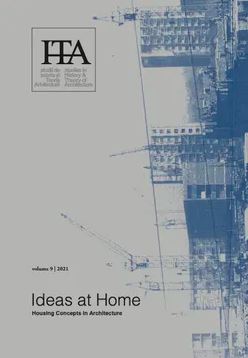Between Political Agenda and Common Desire: Genealogy of Socialist Dwelling in Postwar Croatia (1945-1960)
Between Political Agenda and Common Desire: Genealogy of Socialist Dwelling in Postwar Croatia (1945-1960)
Author(s): Sanja Matijević Barčot, Ana GrgićSubject(s): Architecture, Political history, WW II and following years (1940 - 1949), Post-War period (1950 - 1989), History of Art
Published by: Universitatea de Arhitectură şi Urbanism »Ion Mincu«
Keywords: socialism; modernization; Croatia; socialist dwelling; informal housing;
Summary/Abstract: “Do spaces have politics?” With this question, raised in the introduction to their acclaimed book Socialist Spaces: Sites of Everyday Life in the Eastern Bloc, historians David Crowley and Susan E. Reid open their research into the interactions between space and politics. Are there any physical and aesthetic characteristics that allow spaces to be classified according to a particular political ideology? In the public urban domain of the Eastern bloc it is fairly easy to detect spaces that, in the context of socialist ideology, answer this question in the affirmative. For the most part these are ceremonial spaces, monuments, people’s palaces, often with recognizable Socialist Realism aesthetic features. However, Crowley and Reid’s book also offers a whole range of examples that demonstrate how ideology permeated those spaces that did not necessarily possess the potential for representation, but rather belonged to the intimate domain of everyday life. Our paper follows this thread, examining the implications that socialist ideology had on the domain of housing in post-war Croatia, which was at that time part of Yugoslavia.
Journal: sITA – studii de Istoria şi Teoria Arhitecturii
- Issue Year: 2021
- Issue No: 9
- Page Range: 51-70
- Page Count: 20
- Language: English

